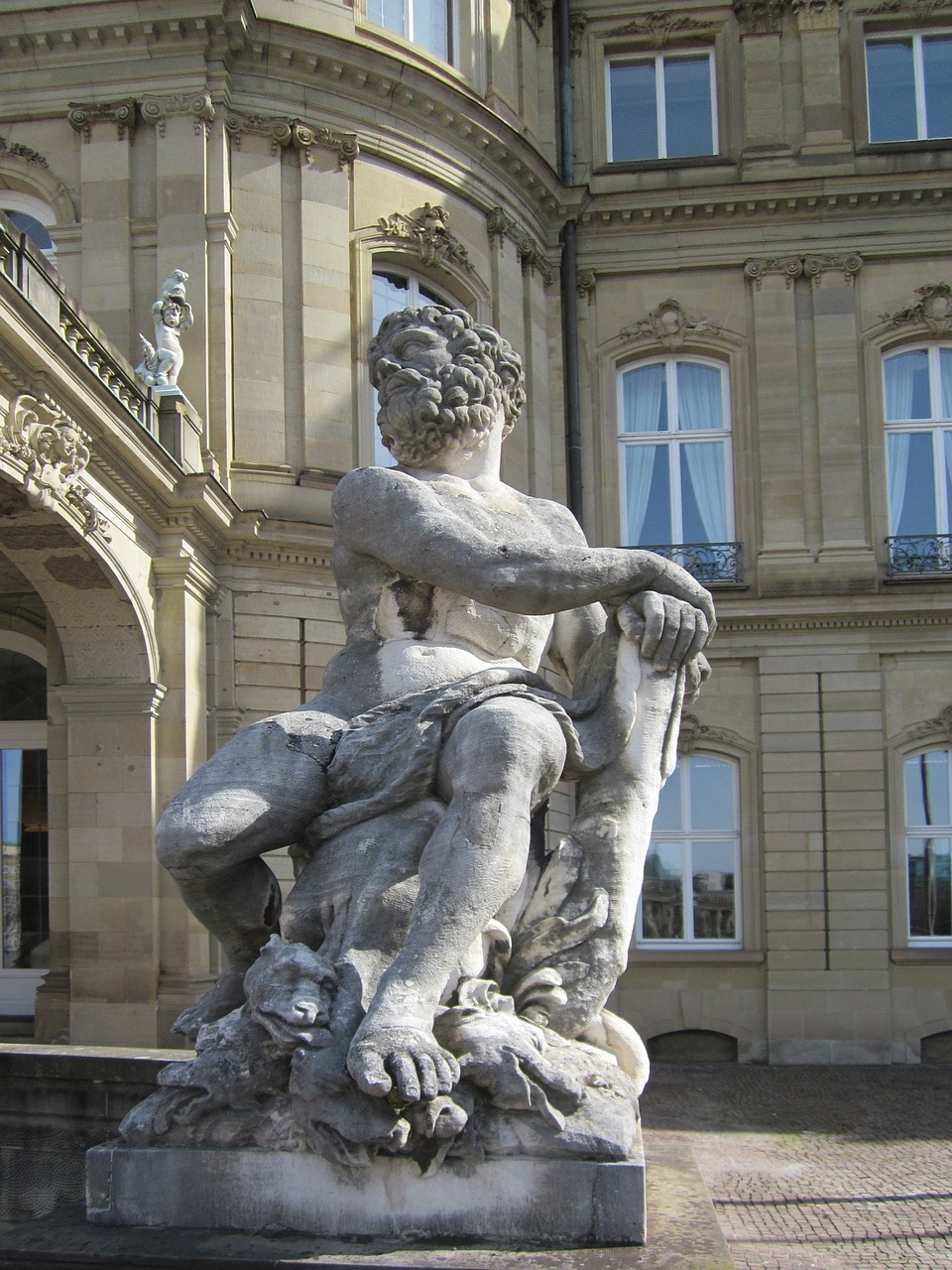Heracles, one of the legendary figures of Greco-Roman mythology, is renowned for his remarkable feats and strength. He is traditionally identified as the offspring of Zeus and Alcmene, the granddaughter of Perseus. Zeus had vowed that the first male born from the lineage of Perseus would ascend to the throne of Greece. However, due to scheming by his envious wife Hera, the sickly Eurystheus was delivered first and therefore claimed kingship. As Heracles grew older, he became subject to Eurystheus’s command and endured Hera’s relentless wrath; his initial triumph came when he selflessly strangled two serpents sent by her to dispose of him in infancy.
Heracles engaged in a victorious conflict against the kingdom of Orchomenus located in Boeotia and subsequently wed Megara, who was the daughter of Creon, the Theban king. In a moment of insanity orchestrated by Hera, he tragically murdered Megara along with their children, which led to his servitude under Eurystheus. This king assigned Heracles the famed Labors, a collection of twelve tasks, which include: (1) slaying the Nemean lion, whose skin he wore as armor, (2) defeating the nine-headed Hydra of Lerna, (3) capturing the elusive hind of Arcadia, (4) capturing the wild boar of Mount Erymanthus, (5) cleansing King Augeas’s cattle stables in a single day, (6) shooting the man-eating birds of the Stymphalian marshes, (7) seizing the mad bull from Crete, (8) capturing the flesh-eating mares of King Diomedes, (9) procuring the girdle of Hippolyte, queen of the Amazons, (10) acquiring the cattle of the three-bodied giant Geryon from Erytheia, (11) retrieving the golden apples from the Hesperides, and (12) fetching Cerberus, the three-headed dog, from the underworld.
After accomplishing the Labors, Heracles continued on further adventures, including military campaigns. In a notable episode, he defeated the river god Achelous to win the hand of Deianeira. During their journey home, the Centaur Nessus attempted to assault Deianeira, prompting Heracles to shoot him with a poisoned arrow. As he lay dying, Nessus instructed Deianeira to save his blood, claiming that it would ensure Heracles’s undying love if he wore a garment stained with it. Many years later, when Heracles fell for Iole, the daughter of Eurytus, Deianeira, fearing Iole would become a rival, sent her husband the poisoned robe. Tragically, the blood proved to be fatal, resulting in Heracles’s demise. He was cremated on Mount Oeta, where his mortal parts were consumed, allowing his divine essence to ascend to the heavens and ultimately reconcile with Hera, marrying Hebe in the process.
In both artistic and literary depictions, Heracles is portrayed as a man of considerable strength, with a moderate stature, a hearty appetite, and a robust character, often displaying a kind nature interspersed with bouts of intense rage. His favored weapons were the bow and sometimes the club. In Italy, he was venerated as a deity associated with trade and commercial endeavors, while many also sought his blessings for prosperity and protection from peril.



